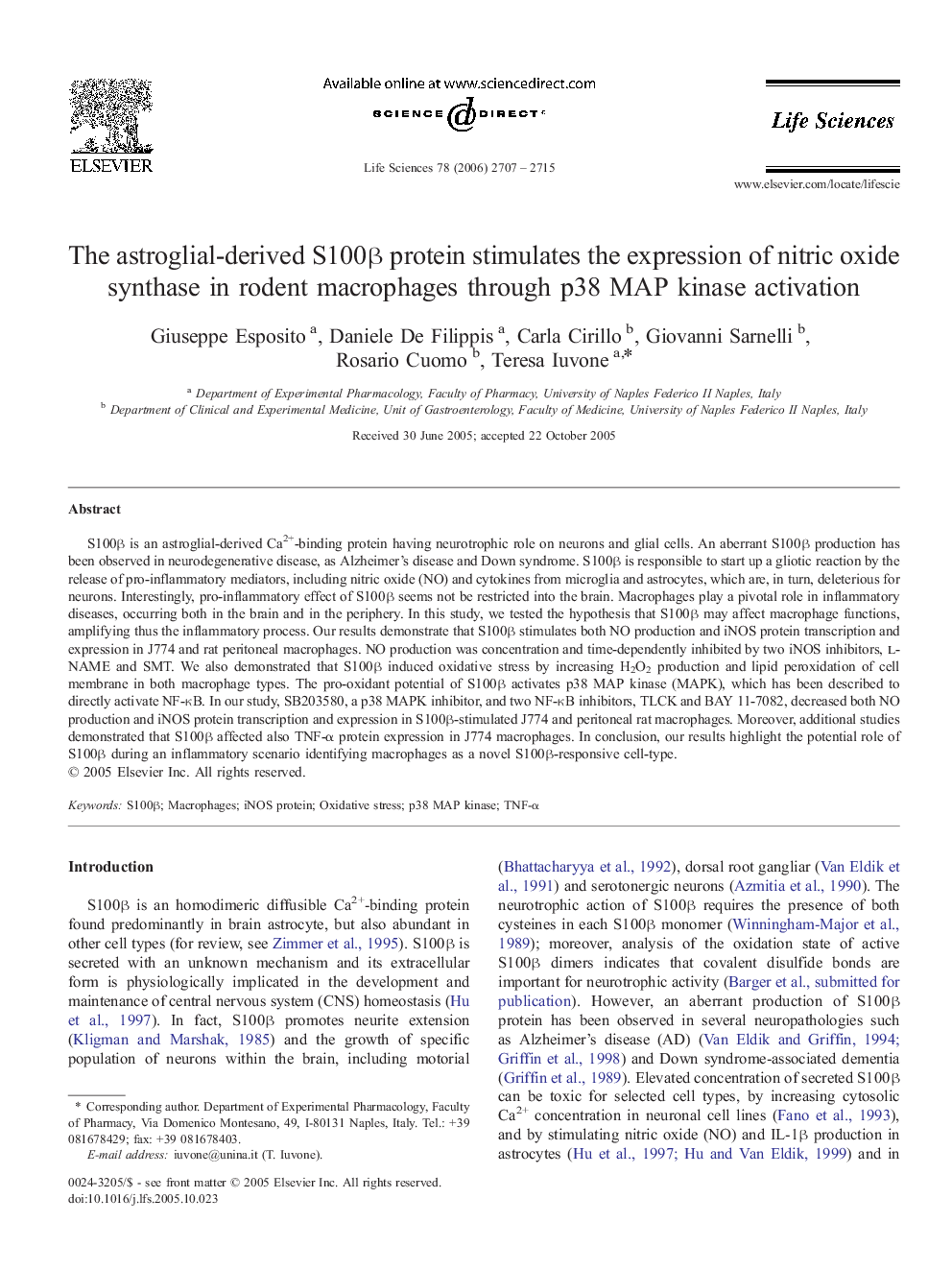| کد مقاله | کد نشریه | سال انتشار | مقاله انگلیسی | نسخه تمام متن |
|---|---|---|---|---|
| 2554232 | 1124956 | 2006 | 9 صفحه PDF | دانلود رایگان |

S100β is an astroglial-derived Ca2+-binding protein having neurotrophic role on neurons and glial cells. An aberrant S100β production has been observed in neurodegenerative disease, as Alzheimer's disease and Down syndrome. S100β is responsible to start up a gliotic reaction by the release of pro-inflammatory mediators, including nitric oxide (NO) and cytokines from microglia and astrocytes, which are, in turn, deleterious for neurons. Interestingly, pro-inflammatory effect of S100β seems not be restricted into the brain. Macrophages play a pivotal role in inflammatory diseases, occurring both in the brain and in the periphery. In this study, we tested the hypothesis that S100β may affect macrophage functions, amplifying thus the inflammatory process. Our results demonstrate that S100β stimulates both NO production and iNOS protein transcription and expression in J774 and rat peritoneal macrophages. NO production was concentration and time-dependently inhibited by two iNOS inhibitors, l-NAME and SMT. We also demonstrated that S100β induced oxidative stress by increasing H2O2 production and lipid peroxidation of cell membrane in both macrophage types. The pro-oxidant potential of S100β activates p38 MAP kinase (MAPK), which has been described to directly activate NF-κB. In our study, SB203580, a p38 MAPK inhibitor, and two NF-κB inhibitors, TLCK and BAY 11-7082, decreased both NO production and iNOS protein transcription and expression in S100β-stimulated J774 and peritoneal rat macrophages. Moreover, additional studies demonstrated that S100β affected also TNF-α protein expression in J774 macrophages. In conclusion, our results highlight the potential role of S100β during an inflammatory scenario identifying macrophages as a novel S100β-responsive cell-type.
Journal: Life Sciences - Volume 78, Issue 23, 1 May 2006, Pages 2707–2715